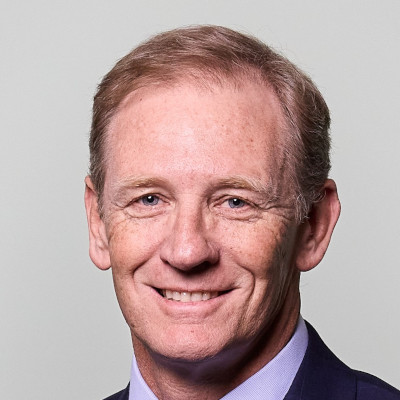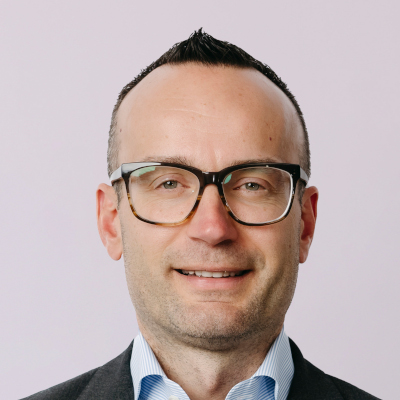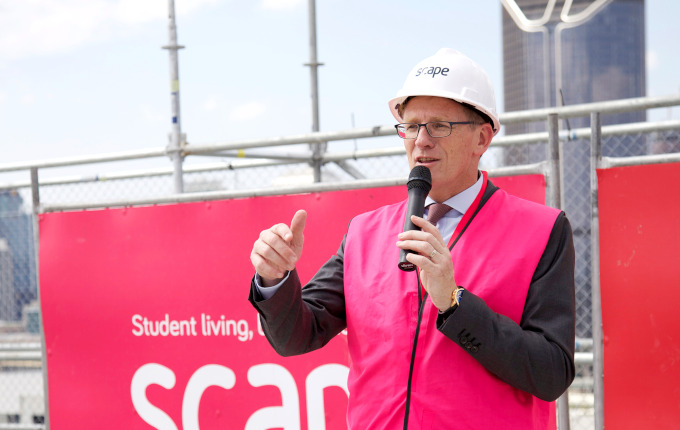The student housing sector in Australia is almost fully backed foreign institutional investors, as domestic funds show hesitance to commit to the sector, Florence Chong writes
The Australian Retirement Fund (ART) has become the first large super fund to enter the burgeoning student housing market, investing in a Norwegian student housing platform, Bo Coliving.
In March, the Brisbane-based fund acquired the Norwegian company, which owns 52 residential sites offering 1,400 beds, for NOK 1.8 billion ($236m) through the US fund manager, Heitman, which now manages the asset on its behalf.
For ART, the choice of entry came after careful consideration of the chosen market. Norway has a relatively supportive tertiary education policy, which has led to a substantial domestic student population and a distinct shortage of good quality student accommodation.
ART could clearly see a need to introduce a more professionally managed, institutionalised approach to the sector for the benefit of the local population.
This sets Norwegian student accommodation demand apart from that in most other countries, which rely on international student demand. Norwegian students can afford to spend a reasonable amount on student accommodation, according to Brian Parker, Chief Economist at ART.
Discussing the investment in a podcast, Parker says that while it is difficult to describe an investment as recession-proof, what he has seen so far from the Bo Coliving investment is a business that should deliver reliable, solid returns over the long term.
Despite its Norwegian initiative, ART, like its peers, is yet to enter the sector in its home market, where purpose-built student accommodation (PBSA) is still in its infancy – and continues to face regulatory hurdles.
Impact of COVID
The COVID pandemic also dealt a blow to the sector, from which, according to Australia’s largest operator Scape Australia, the industry “will take years” to recover.
Craig Carracher, chief executive of Scape Australia, told [i3] Insights: “The sector in Australia lost over $1 billion and we lost nearly $500 million in revenue – with zero support from the government or the university sector. We housed the critically homeless and students without support.”

[During COVID] the sector in Australia lost over $1 billion and we lost nearly $500 million in revenue – with zero support from the government or the university sector – Craig Carracher, Scape Australia
He adds: “We have lost 3 years of time and revenue and it will take some years to make up for those losses.” This is despite a rapid recovery of international student arrivals post-pandemic.
In the first six months of this year, some 622,000 international students were studying in Australia – 29 per cent more than in the same period last year.
Collectively, they spent A$21.3 billion on tuition, accommodation and other living costs within Australia, according to the Australian Bureau of Statistics.
Australia is still one of the most popular destinations for international students, more-so now because a weak Australian dollar has made Australia become more affordable than the other top preferred markets, including the UK, the US and Canada.
Carracher agrees that, along with the rapid return of students, profit has returned. “We are profitable again,” he says. Today, Scape student accommodation blocks are 95 per cent full.
“But,” he cautions, “the bounce-back in student numbers should not be taken for granted. This year’s run rate of excessive demand should not be assumed by the business as the usual run rate. We need to see how 2024 plays out.”
There is also a new spanner in the works: changes to rental regulation. Carracher is concerned that occupancy is reducing because students can now break leases under residential tenancy laws. That leaves PBSA operators with empty rooms which can’t be filled until mid-semester, given seasonal intakes.
Says Carracher: “Residential tenancy laws should not apply to our sector in the same way (as the open rental market) as this produces bad inefficiencies which will result in price hikes.”
Local Funds Show Hesitance
It is perhaps such uncertainties that play on the minds of Australian super funds when they consider options to invest in the so-called living sector. Since its inception in 2015, the Scape team has been talking to Australian super funds. As yet, it has been unable to convince them to invest in student housing.
Scape Australia has almost singled-handedly institutionalised the student housing market with foreign capital. This raises the question why Australian super funds are not allocating to the sector – a sector so important to Australia’s prosperity. Education is our third-largest export industry, says Carracher. He adds fund members should be asking this question of the custodians of their savings.
Under the broad branding of living sector, residential real estate in all its permutations – from social, affordable, build-to-rent (BTR), build-to-sell, retirement living and disability accommodation – has started to attract allocations from large industry funds.
Australian super funds have gingerly moved into BTR. But the seasoned investors in residential, including Hostplus, Cbus (through Cbus Property) and Aware Super, have no plans – at least for now – to enter the student accommodation sector.

Our current build-to-rent focus ... is on affordable housing, with an emphasis through the Aware Super Essential Worker Housing program on providing accessible housing to our frontline workers, such as nurses, teachers and police officers – Alek Misev, Aware Super
Alek Misev, Head of Property at Aware Super, tells [i3] Insights: “We currently have no plans to invest in the student housing sector.”
He adds: “Our current build-to-rent focus, through our directly-owned, Australian property platform, Aware Real Estate, is on affordable housing, with an emphasis through the Aware Super Essential Worker Housing program on providing accessible housing to our frontline workers, such as nurses, teachers and police officers.
“We also have a strong focus on retirement living and are the largest owner of retirement assets in Australia.
“Our focus on the affordable housing segment within the build-to-rent spectrum provides our members with access to a stable and sustainable return profile. In fact, Aware Super is Australia’s pioneering leader and market leader in essential worker housing, with around 500 units and more than 1,200 in the pipeline,” says Misev.
A spokesman for a large industry fund told [i3] Insights: “We don’t comment on this area of the market”. This fund is starting to make traction in the affordable housing market.
Another industry fund says that, at this stage, it is capacity-constrained, and declines to comment on whether student housing is on its investment agenda for the future.
Foreign Interest
By contrast, foreign investors, including GIC, APG, ADIA, Ivanhoe Cambridge, Allianz Real Estate, (now known as PIMCO Prime), AXA Investment Management and Bouwinvest have no such inhibitions when it comes to student housing.
Dutch investors APG and Bouwinvest were among the very first to back Scape Australia back in 2016. As Carracher says, the Australian sector has been underwritten by foreign capital.
Today, Scape Australia, founded by Craig Carracher and Stephen Gaitanos, run 33 student housing projects around the country, with more than 16,000 apartments in its rapidly-growing portfolio.
GIC bought a half-share in the Australian student housing portfolio of a listed Singaporean developer, Wee Hur, for $568 million last August. Wee Hur said the recapitalisation of its first Australian-focussed PBSA fund provides a war chest for the group to seek further investment to build on its portfolio of 5,000 beds.
GIC is now ranked the second-largest investor, with 12 operational properties in Australia, according to Savills Asia. It has properties under development to provide 2,213 beds. All told, it will own 7,260 beds in 16 buildings.
The Singapore sovereign wealth fund was an early mover in the sector. In 2014, it formed a joint venture with Macquarie, which bought a majority interest in the Sydney-based Iglu, a student housing company.
Foreign investors see growth potential in Australia
Australia’s fledging student housing market is a long way from being able to cope with the surge in demand, with international students competing for accommodation in the private rental market.
Average rents for student accommodation in Australia rose eight per cent last year, according to a global research group, BONARD.
Strong fundamentals aside, investing in PBSA requires strong conviction. Hence the foreign pension funds which have ridden many economic cycles in other market can see the logic of investing in Australia’s growing PBSA market.
__________
[i3] Insights is the official educational bulletin of the Investment Innovation Institute [i3]. It covers major trends and innovations in institutional investing, providing independent and thought-provoking content about pension funds, insurance companies and sovereign wealth funds across the globe.


![[i3] Property Forum 2024 | Investment Innovation Institute](https://i3-invest.com/wp-content/uploads/2023/10/i3-Property-Forum-2024_SlideShow_16x9-copy-680x382.jpg)